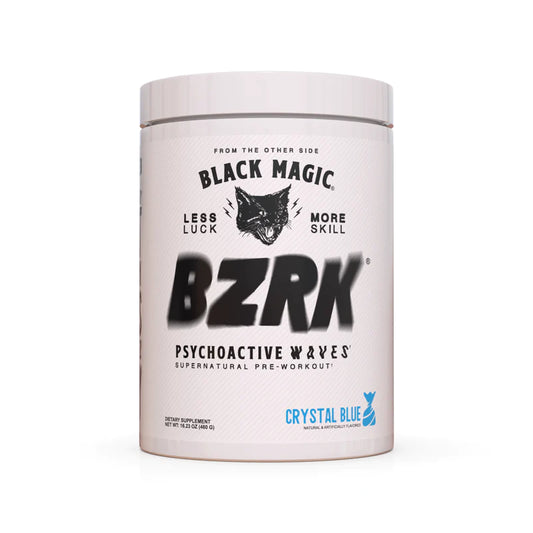Caffeine is one of the most commonly consumed stimulants in the world, known for providing an energy boost and jolt of focus. But how exactly does it provide these effects? And can caffeine be used strategically around workouts to enhance performance? This blog post will break down the science behind how caffeine works along with research-backed guidance on how to time caffeine intake to maximize energy, endurance, strength, and recovery from exercise.
What is Caffeine?
Caffeine is a natural stimulant compound found in the leaves, seeds, and fruits of over 60 different plant species worldwide. The most common dietary sources of caffeine are coffee, tea, cocoa beans, cola nuts, and energy drinks. Caffeine is classified as a nervous system stimulant due to its ability to enhance alertness and focus by blocking adenosine receptors in the brain.
Adenosine is a neurotransmitter that promotes sleep and suppresses arousal. As adenosine levels rise throughout the day, signals to the brain increase telling the body it's time to rest. Caffeine is similar in structure to adenosine and competitively binds to adenosine receptors without activating them. This blocking action causes a reduction in the effects of adenosine, leading to increased firing of neurons and release of other neurotransmitters like dopamine and norepinephrine. This stimulant effect is what accounts for caffeine's ability to enhance alertness, focus, and performance.
How Caffeine Enhances Exercise Performance
There are several evidence-based ways that caffeine has been shown to enhance exercise performance:
Increased Energy and Endurance
Caffeine helps increase lipolysis - the breakdown of fat stores into free fatty acids for fuel. This spares glycogen stored in muscles and improves endurance exercise capacity. Studies show that pre-exercise caffeine intake at doses from 3-6mg/kg can increase exercise time to exhaustion by 12-15% on average.
Enhanced Strength and Power
Research has consistently shown that caffeine can enhance performance in strength and power-based activities. This is thought to be due to caffeine’s impact on muscle contraction. By influencing calcium handling in muscle fibers, caffeine may allow muscles to generate greater force and power output. Doses from 2-6mg/kg taken 30-60 minutes pre-workout can enhance maximum voluntary contraction strength, muscle activation, and anaerobic power.
Improved Focus and Alertness
The stimulant effect of caffeine on the central nervous system makes it a useful pre-workout tool for improving focus and alertness. Caffeine may help increase motivation and readiness to train through elevated dopamine levels and adrenaline. Doses under 3mg/kg appear most effective for focus/concentration benefits.
When to Take Caffeine for Exercise
Timing caffeine intake strategically around workouts is important to maximize the performance-enhancing effects while minimizing unwanted side effects. Here are some best practice guidelines on when to take caffeine:
- For endurance exercise, 200-300mg of caffeine (3-6mg/kg) 30-90 minutes pre-exercise is optimal. This gives enough time for caffeine to be absorbed and reach peak blood levels during endurance events.
- For strength training a moderate dose of caffeine 3-6mg/kg taken 60 minutes prior allows peak blood concentrations during the workout.
- Less caffeine is needed for cognitive benefits - 25-200mg (0.3-3mg/kg) consumed 20-30 minutes pre-workout helps boost focus and motivation.
- Avoid caffeine after 2pm if workouts are in the evening to prevent sleep disruption.
- Caffeine novice and sensitive individuals should start with a 100mg dose (1-2mg/kg).
How to Supplement with Caffeine
There are three main forms of supplemental caffeine to choose from:
- Caffeine pills/capsules: Provide a precise measured dose. Tablets can be taken with water pre-workout. Extended release capsules deliver caffeine over 6-8 hours.
- Powdered caffeine: Measured out and added to a drink. Allows ability to customize caffeine dosage. Effects felt within 15-45 minutes.
- Caffeinated drinks: Coffee, tea, soda, energy drinks. Varying amounts of caffeine. Usually contain added sugars and other ingredients.
The form used depends on personal preference and what is most convenient pre-workout. To maximize performance benefits, it's ideal to take caffeine in isolation rather than mixed in with other ingredients.
Side Effects of Caffeine
While low-moderate doses of caffeine are considered safe for most healthy individuals, some side effects can occur including:
- Anxiety, jitters, restlessness with excessive intake - above 400mg per day.
- Sleep disruption if taken too late in the day.
- Tolerance build up over time requiring more caffeine for the same effect.
- Withdrawal headaches if stopped abruptly after regular daily use.
- Upset stomach, nausea, diarrhea in caffeine-sensitive individuals.
Proper dosing, timing and cycling off caffeine for periods can help minimize adverse side effects. It's best to start low and gradually increase dosage as needed. People with certain medical conditions may need to moderate or avoid caffeine intake.
Maximizing the Performance Benefits of Caffeine
Here are some key strategies to apply for getting the most out of caffeine’s performance enhancing effects:
- Experiment to find the minimal dose needed for benefits - start low 100-200mg.
- Be consistent day to day with timing and dosage around workouts.
- Cycle off caffeine for 7-10 days every 6-8 weeks to reset tolerance.
- Avoid relying on caffeine daily and use it strategically before key workouts/events.
- Stay hydrated to help metabolize caffeine and minimize side effects.
- Stack caffeine with L-theanine to promote calm focus. 200mg caffeine with 100-200mg L-theanine is a popular pre-workout combo.
- Mix up caffeine sources - coffee, tea, supplements to get diversity of phytonutrients.
The Next Level Pre-Workout Caffeine Stack
Want to really maximize strength, endurance and focus in your workouts with caffeine? Try stacking it with these synergistic performance-boosting compounds:
- Creatine: Research shows caffeine + creatine together enhances repeated sprint performance, strength, and lean mass gains more than either supplement alone. Dose 5g creatine with caffeine pre-workout.
- L-Carnitine: This amino-acid based compound works with caffeine to increase fat mobilization and endurance. Take 1-2g L-Carnitine L-Tartrate with caffeine before cardio or HIIT.
- Beta-Alanine: Supports increased power output and training volume when combined with caffeine. Dose 3-5g beta-alanine per day with caffeine pre-workouts.
- Citrulline: This pre-workout supplement can further enhance the strength and endurance benefits of caffeine. Take 6-8g citrulline DL-malate along with caffeine.
- Beetroot Juice: Provides nitrates that boost blood flow. The nitrates amplify caffeine’s exercise performance benefits. Consume 200-300mg nitrates from beetroot juice.
By applying evidence-based strategies for properly dosing and timing caffeine, you can maximize the performance, energy and focus-enhancing effects of this widely used supplement for your workouts. Pay close attention to finding the optimal caffeine dosage for you, avoiding excessive intake and cycling it as needed. With the right caffeine strategy, you’ll be performing at your best!




